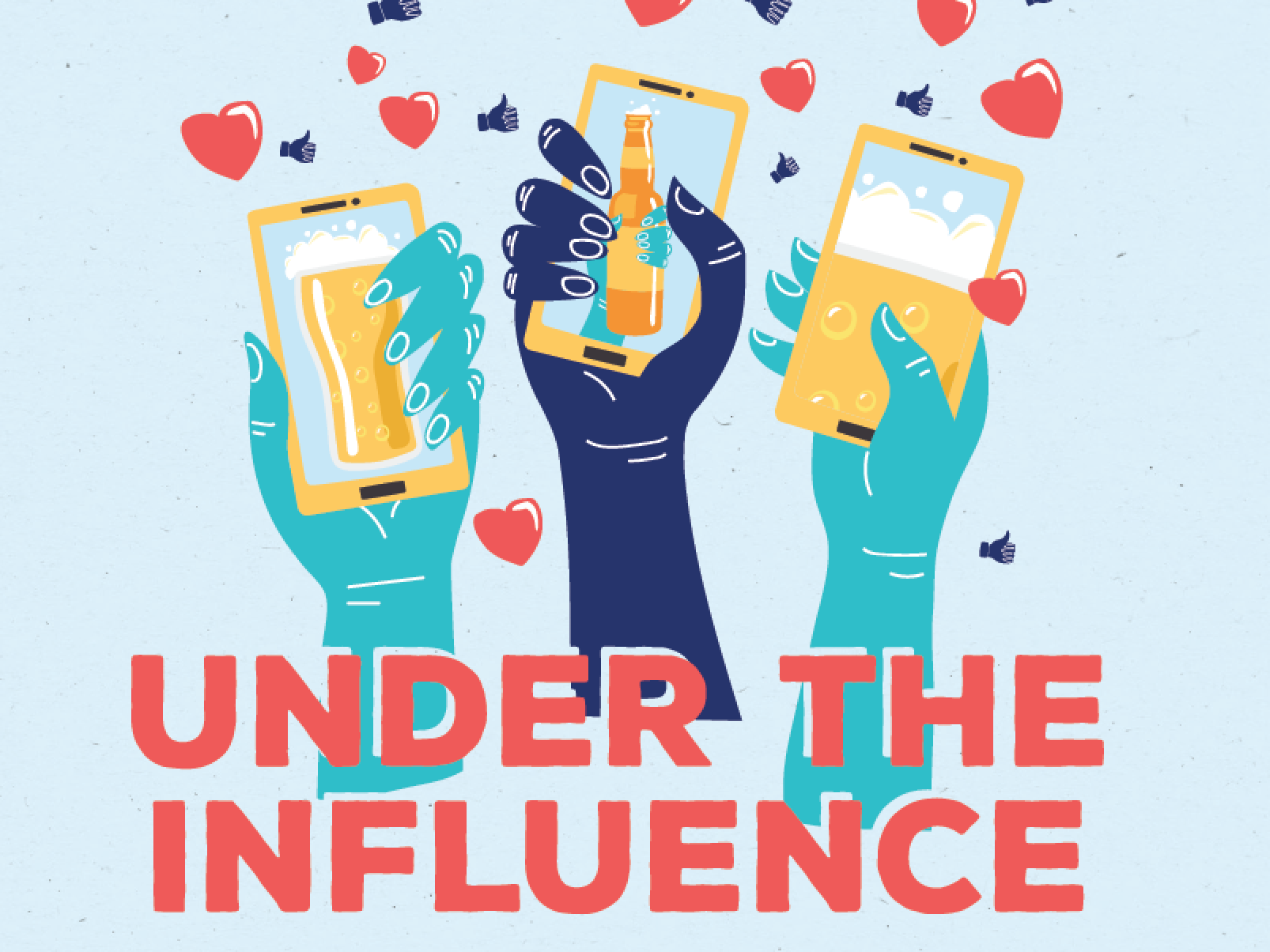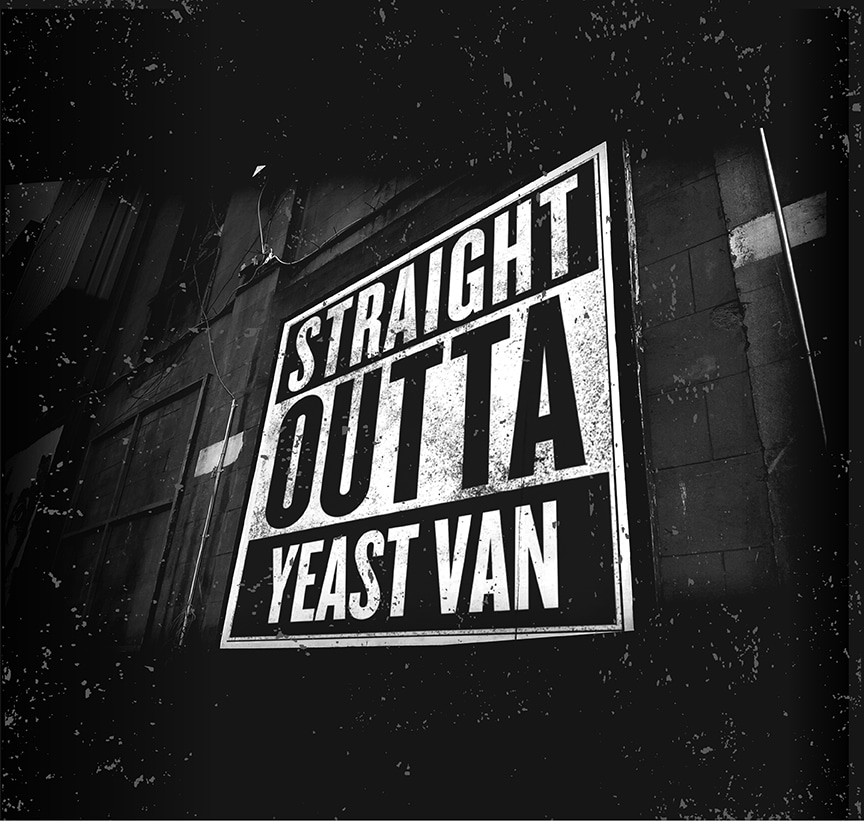Social media platforms—and their proverbial influencers—are changing how we find out about new craft beers, and probably not for the better.
There was a point in time, the early aughts perhaps, when it seemed like the prevalence of social media was something that was changing the world for the better. Like no other time in history, we had access to virtually all the world’s information, Twitter seemed to be helping spread democracy across the globe, Facebook was simultaneously letting us connect with one another 24/7 and giving a voice to the marginalized. The possibilities for achievement seemed limitless.
But then we over did it. We’ve since learned that disinformation can be spread just as fast as actual information, our newfound digital democracy cleared the way for demented despots to dominate our collective conscious, and there is now virtually no limit to the amount of fucking invites to improv shows and amateur concerts I receive.
The movement to give everyone a voice and share virtually all information all the time has of course had many casualties (see: America, United States of), and so it’s not all that surprising that the beer world has not been spared. Yes, on the one hand, the prevalence of social media has allowed small, independent companies to affordably share their stories and their brands and, as a result, craft beer has chipped away at a landscape formerly dominated entirely by behemoth industrial breweries..
But on the other hand, the newly-amplified conversation about beer has… kind of ruined everything.
Because social media has created an atmosphere where virtually all content exists as a sort of attention-deficit version of what it once was, we don’t have any time for anything—and that includes good criticism. In the digital age, no one seems to have the patience or inclination to digest considered commentary on any topic, and so when it comes to thoughtful discussion on beer, the chatter has become even more scarce.
An example: I have occasional tendencies toward masochism and, when they surface, I find myself looking at beer-related Reddit subs. On one such perusal, I read a post where a redditor called writers who were considering larger issues related to the beer industry “insufferable.”
All PeterHoppingtail86 (or something like that) really wanted was to know was “what new beer is out there?” Someone had actually taken the time to write about larger themes shaping the craft beer industry, but people, like this guy, are either too busy or too inundated with content to engage actual criticism and literally just want pictures of new beer.
The result of this need for lowest-common-denominator “news” has, of course, led to a predictable end result: Suddenly, everyone thinks their opinion matters. When no one really gives a shit who has the best information or who wrote the best article about a certain topic, all that really stands out is who was first, who has a bigger audience, or who presented their point of view in the flashiest way possible. Suddenly, the voices leading the conversation have shifted.
Enter, the Beer Influencer.
As soon as people figured out that you don’t actually need to put thought into a considered review, you don’t need to engage the owners of breweries, take time to interview the people who actually make beer, or taste and sample beer (let alone visit a brewery) with a critical eye, there came a shit storm of people to fill the void. Every alcoholic with an Instagram account, boozer with a decent Twitter following, or craft beer fan with 30 minutes to set up a YouTube channel now fancies him or herself a tastemaker and, as a result, the critical landscape is basically a wasteland.
Newspapers laid off critics—do you even know a mainstream media outlet with a dedicated drinks person or restaurant critic anymore?—and beer magazines closed up shop. Do you have any idea what a rare and beautiful thing it is that you’re holding a print publication that pays for beer writing (subscribe today, please)? The concept of “beer criticism” in 2019 has largely been replaced with Instagram posts, vaguely-toxic Reddit threads, rarely updated websites, and unedited Youtube videos of people drinking beer they got for free and calling it a review.
And I know, coming from someone who has been writing about beer for almost a decade, this might all seem a little Old Man Yells at Cloud, but I’d argue it’s not just the quality of beer criticism that’s deteriorated, it might just be the beer, too.
Just as influencers have realized how easy is to get free shit in pursuit of followers and likes, brewers have realized it is a cheap and easy marketing ploy to simply send beer to people who are already happily over-sharing online.
And I can’t say I blame them. The cost of sending a beer to @MaltyMary420 is minimal and the potential that she will take a picture with your beer in it and share it with a couple thousand followers is high, so why not? Whereas, even five years ago, sending a beer to say, author Jordan St. John might have earned you a public tongue lashing if you sent him a sub-par lager on an evening he found himself with some time to write in his blog. Today, brewers can ship a dozen cans of their new release to Twitterati bros or scantily-clad Instarones and there is virtually zero chance of anyone taking a critical stance of the product.
And if someone like St. John does opt to wax poetic on the shortcomings of the beer? Not to worry, few people will take the time to even read anything over 500 words and, instead, your beer will be readily hashtagged with the #excitement at having received free product and you’ll get FOMO-inducing images of your product shared across the Internet for the cost of half a case of beer.
But this has of course created a sort of negative feedback loop.
Brewers send a sub-par beer to “influencers” and it gets the same dutiful “Look what I’m drinking!” treatment that every other beer gets, so the brewer can infer that the beer is objectively good, and they keep making it. The alternative is that someone with an actual opinion about a beer dares to voice such an opinion and jeopardizes their access to free shit, so they don’t. Because influencers trade on the currency of being likable (they literally gauge performance based on “likes”), being negative puts that currency in jeopardy: If they don’t get free shit, they don’t get likes, and if they don’t get likes, they stop getting free shit, so it is of paramount importance to remain likable.
The result is that no one is offering up real criticism anymore. Brewers reward mediocre social media efforts, mediocre social media efforts are rewarded with the desired traffic, and the cycle repeats itself, pushing the industry toward mediocrity.
Of course, there is a cure and it’s called disclosure.
There are still some voices on social media who are engaging both their audience and the industry they cover with fairness and transparency. Increasingly, they are the only people I bother to talk to. So, if you actively follow “beer people” on social media, seek out those who disclose.
If you want to read the work of critics who conduct themselves with integrity look to those who let you know when they are being plied with freebies. If someone is at a dinner hosted by a brewery and the brewery paid for the ticket or meal or drinks, it should be acknowledged so that followers can take the praise for the spinach dip and dutiful hashtagging with a grain of salt. “PS—I got this shit for free” goes a long way to building trust.
Beware those who seem to gleefully post the free shit they got without much commentary. It is definitely fun, in the beginning at least, to have a brewery send you free beer in the mail (it’s free beer, what could be more fun?), but that really shouldn’t be what motivates any one to take to their digital soapbox.
If you’re avoiding writing negative stuff that beer drinkers would want to hear because you’re worried it will jeopardize your next “beer mail” delivery, just throw your laptop in a lake and never write anything again because you don’t deserve a public forum any way.
And, breweries, you’ll be better off in the long term if you kick the nasty habit of rotating your freebies through the latest glommers-on. Work with reviewers with integrity and experience and you’ll get more than cheap likes and momentary screen time.
Part of the craft beer anthem is that we’re choosing something more substantial than fizzy corn water marketed with bikinis and patriotic platitudes about beavers. Let’s put the same consideration into how we talk about craft beer.





